 Petzlover
Petzlover Beaglier is originated from Australia but Spanish Mastiff is originated from Spain. Beaglier may grow 48 cm / 18 inches shorter than Spanish Mastiff. Beaglier may weigh 90 kg / 198 pounds lesser than Spanish Mastiff. Both Beaglier and Spanish Mastiff has almost same life span. Beaglier may have less litter size than Spanish Mastiff. Beaglier requires High Maintenance. But Spanish Mastiff requires Low Maintenance
Beaglier is originated from Australia but Spanish Mastiff is originated from Spain. Beaglier may grow 48 cm / 18 inches shorter than Spanish Mastiff. Beaglier may weigh 90 kg / 198 pounds lesser than Spanish Mastiff. Both Beaglier and Spanish Mastiff has almost same life span. Beaglier may have less litter size than Spanish Mastiff. Beaglier requires High Maintenance. But Spanish Mastiff requires Low Maintenance
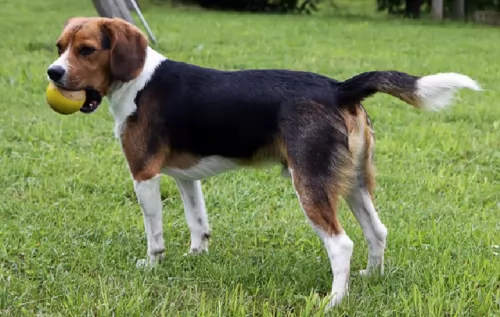 The Beaglier beginnings are set in Australia. Before around 30 years, breeders cross-breed the Beagle and the Cavalier King Charles Spaniel. The result actually turned out great – new we have a small sized breed with a wonderful, soft coat, very likeable looks, the calm and gentle dog which is very active despite his relaxed nature. They can be found around the globe nowadays and they are very popular because of their sweet nature.
The Beaglier beginnings are set in Australia. Before around 30 years, breeders cross-breed the Beagle and the Cavalier King Charles Spaniel. The result actually turned out great – new we have a small sized breed with a wonderful, soft coat, very likeable looks, the calm and gentle dog which is very active despite his relaxed nature. They can be found around the globe nowadays and they are very popular because of their sweet nature.
 The Spanish Mastiff is a giant breed that comes from Spain. He has always been a guardian dog.
The Spanish Mastiff is a giant breed that comes from Spain. He has always been a guardian dog.
He is an ancient dog breed, in fact dating back to medieval times. He has always been a guardian of livestock, protecting them from attacks from wolves and other predators.
The first breed standard of this pure breed dog was made by the FCI in 1946. A breeding program was also formed for this dog In 1981.
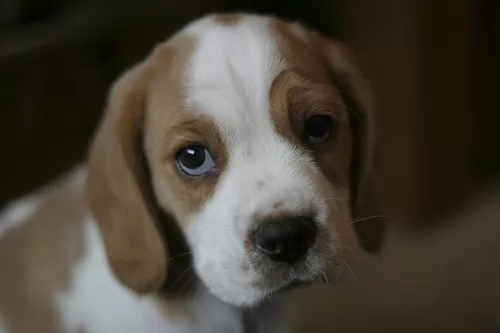 This small dog breed, called Beaglier and Beagler, has the look of his parents. Sometimes, they look more like the Spaniel, and sometimes they look more like the Beagle. This actually means that they are usually small, but can be, in some cases, even medium sized dog. They are usually tricoloured and in most cases, they have dark brown and cream hairs with white markings. They have longer ears, sometimes with more hairs if they look more like the Spaniel. They have large, dark brown eyes and usually dark nose. This breed is very loving and affectionate. They have a high need for a daily activity and they are the best choice for families with children.
This small dog breed, called Beaglier and Beagler, has the look of his parents. Sometimes, they look more like the Spaniel, and sometimes they look more like the Beagle. This actually means that they are usually small, but can be, in some cases, even medium sized dog. They are usually tricoloured and in most cases, they have dark brown and cream hairs with white markings. They have longer ears, sometimes with more hairs if they look more like the Spaniel. They have large, dark brown eyes and usually dark nose. This breed is very loving and affectionate. They have a high need for a daily activity and they are the best choice for families with children.
 The Spanish Mastiff weighs between 52 and 100kg and the dog’s height is between 72 and 88cm. He has a thick, heavy coat with rustic colors of fawn, black, grey, reddish and yellow as well as brindle.
The Spanish Mastiff weighs between 52 and 100kg and the dog’s height is between 72 and 88cm. He has a thick, heavy coat with rustic colors of fawn, black, grey, reddish and yellow as well as brindle.
He is powerful and muscular with a huge head. The ears are medium length and floppy and the tail is long. If you were looking for a puppy, the American Kennel Club is the only site which has 100% puppies from AKC-Registered litters.
Large, kind, gentle and intelligent, the Spanish Mastiff is well balanced. When you see him you won’t find a dog that is light on his feet and who jumps around excitedly. He is a dignified, intelligent dog, quiet and calm.
Even though he is so calm, it is still a good idea to have him trained and socialized as his very size could be a problem. When you tell him to lie down, you want him to listen to you. This big, gentle giant is devoted to his human family ad takes the role of guardian and protector seriously.
He isn’t suited to life in the city but is better suited to a large property, also because he has a loud bark.
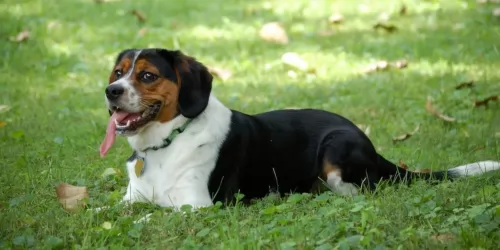 If you decide to bring a Beaglier to your family, it will be the best that you wait for your children to grow up a little bit. They are great to play buddy, but they get carried with the game and they can be very careless during the play. They fit perfectly with the children above the age of 5. They will run, jump, and do whatever your kid is about to do. They are friendly towards children they don’t know but they don’t do well with other animals they don’t know.
If you decide to bring a Beaglier to your family, it will be the best that you wait for your children to grow up a little bit. They are great to play buddy, but they get carried with the game and they can be very careless during the play. They fit perfectly with the children above the age of 5. They will run, jump, and do whatever your kid is about to do. They are friendly towards children they don’t know but they don’t do well with other animals they don’t know.
watchdog
One the main reasons why Beagliers are so much popular lay in their adaptability to any living conditions. They will fit in instantly in a family with children, but they will be happy as well if they live with just one person or even seniors. They can live indoors, houses and apartments without the yard. The Beaglier will enjoy the city parks, dog parks, beach, walking down the crowded streets. This breed is a not a quiet one – they will bark every time they notice something just to let you know. But, they are not aggressive type and they usually bark to communicate with people.
Usually, they are trained very easy. They have a stubborn nature, and if you learn how to get over with this temperament, you will be able to train and raise the sweetest dog ever. They should be trained and socialized while they are still puppies. Since they like too much, the best advice is to use treats to teach them everything that they will need to know. But, be careful with the feeding after the treats – Beagliers get easily obese if they are overfed.
 Kind, gentle, quietly confident and intelligent are just some of the wonderful characteristics of the Spanish Mastiff.
Kind, gentle, quietly confident and intelligent are just some of the wonderful characteristics of the Spanish Mastiff.
You can add loyalty and devotion to these characteristics too and the fact that he wants to protect you.
Your gentle giant is guaranteed to make you the most wonderful companion and he deserves the very best treatment there is.
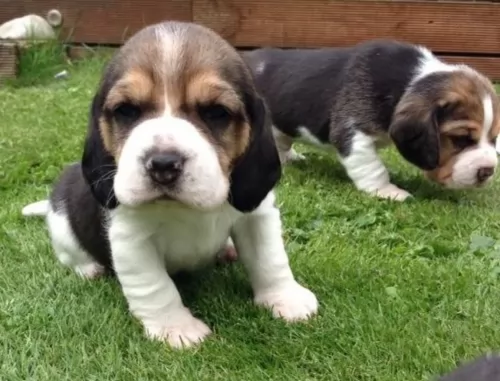 The Beaglier flap ears can be a very great place for the fungi, bacteria and dirt. You will have to clean their ears with an ear cleaning solution and a soft tissue once a week, especially if your pet is playing outside.
The Beaglier flap ears can be a very great place for the fungi, bacteria and dirt. You will have to clean their ears with an ear cleaning solution and a soft tissue once a week, especially if your pet is playing outside.
Cherry eye: Starts as redness in the corner of the eye. Happens when the third eyelid gland slips out of its place and show up as a red blob in the corner of the eye. Sometimes, the gland gets back to its original place in a couple of days, but it will be the best if you can take your dog to the vet as soon as you notice any readiness in his eyes.
Glaucoma: Happens because of the high eye pressure. This affects the normal outflow of the eye fluids and can cause blindness if not treated. It is the best to for your beagle to regular eye checks since this condition is not easy to diagnose in the begging.
 It is good to be wise about some of the common dog problems there are that could plague your Spanish Mastiff. Vets are very familiar with these dog illnesses and they tailor their treatment to suit the needs of your dog.
It is good to be wise about some of the common dog problems there are that could plague your Spanish Mastiff. Vets are very familiar with these dog illnesses and they tailor their treatment to suit the needs of your dog.
Remember to get your pet vaccinated against the terrible diseases you get that can kill a dog – rabies, parvo and distemper.
People often think that obesity is something that isn’t dangerous, when in fact it is a serious disease that can cause joint problems, digestive disorders, heart disease, back pain and hip dysplasia.
Dogs rely on water just like what humans do to keep them healthy and functioning properly.
Water is critically important to every organ and also assists with digestion. Your dog is panting and urinating throughout the day and needs to replace the liquid he loses.
Dehydration in dogs results in loss of electrolytes, such as sodium, chloride, and potassium.This is bad as these minerals have important functions.
A dog that is dehydrated has loss of appetite, loss of skin elasticity, is lethargic, has sunken eyes, wants to vomit, has a dry nose and thick saliva. No dog should ever be left without a constant supply of fresh, cool water day and night.
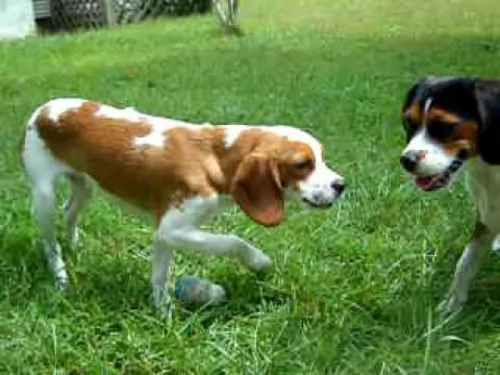 If you are not sure about the dog food you should give to your Beaglier considering the living environment and the lifestyle, it is always the best option to listen to the vet’s advice. They are prone to the obesity so you should keep a schedule that won’t be changed much. Feed them every day at the same time, no more than two meals per day once they get older than 6 months.
If you are not sure about the dog food you should give to your Beaglier considering the living environment and the lifestyle, it is always the best option to listen to the vet’s advice. They are prone to the obesity so you should keep a schedule that won’t be changed much. Feed them every day at the same time, no more than two meals per day once they get older than 6 months.
If you want your Beaglier to be happy, make sure you groom him daily. You will need about 5 minutes per day to brush him and keep him out of the tangles. Bathe then once in a month, that will be enough. Clip their nails regularly. Keep their ears cleaned.
They need a daily activity or they will get destructive. Be careful with the feeding since they get obese very quickly.
Since they are natural hunters, they will like to play chase. You can take them to the woods for a walk or for a run but make sure you train them to respond to your commands before you take them off the leash. They are very curious and they will easily wander off. They can be taught to play inside the house as well. They love to explore new areas so it will be great if you can take them with you for a holiday.
 These are giant breed dogs, so you have to be careful with the way you feed them. Large dogs like these are prone to hip dysplasia so you need to choose a food which has ingredients that work to prevent this disease.
These are giant breed dogs, so you have to be careful with the way you feed them. Large dogs like these are prone to hip dysplasia so you need to choose a food which has ingredients that work to prevent this disease.
You have to be very careful that you don’t overfeed your dog so that the extra weight puts strain on the joints.
This dog will do well with some raw meat added into his diet. Also, include home-made food too. Boiled chicken, brown rice or pasta, sweet potatoes, carrots and spinach chopped up and added to his dry kibble for giant breeds. Added in twice a week can do him the world of good.
A good bush of the thick coat twice a week will keep the Spanish Mastiff looking his best.
The nails will also need to be trimmed regularly to avoid overgrowth and to avoid the nails catching onto things. The ears too should be checked regularly to avoid dampness inside the ear which can cause bacteria.
As a fully grown adult, the Spanish Mastiff isn’t a frisky, frolicking dog but he will still require daily exercise. Options for exercise include long walks, hikes, swimming and ball games.